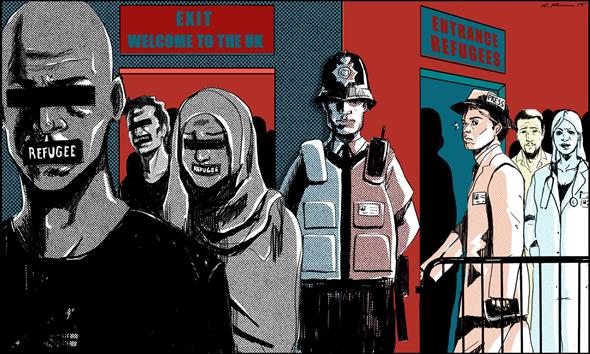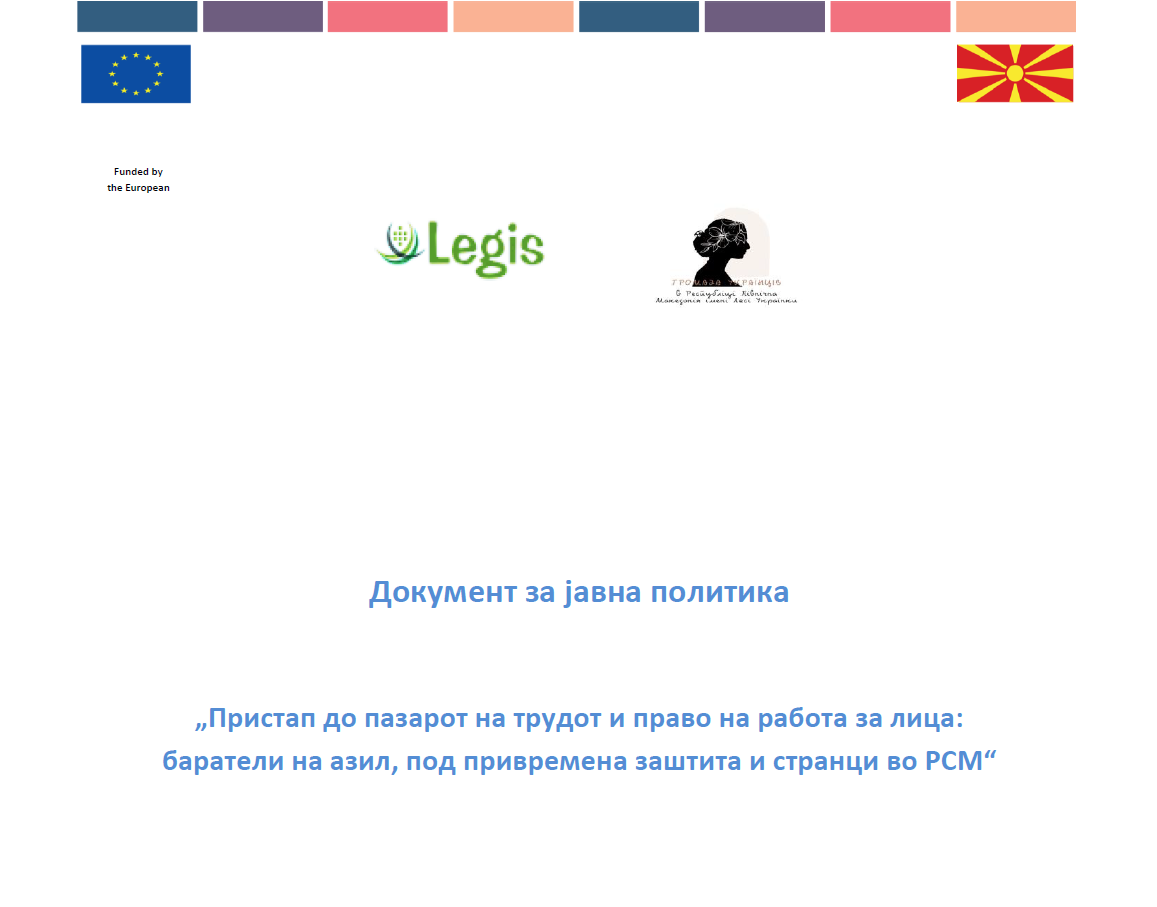Homelessness, dispersal and detention takes its toll on the well-being of those seeking refuge. Another blow comes in the form of long-term unemployment and the loss of professional identity.

Refugees already face immense challenges to their mental health. They have feared for their lives and those of loved ones, and they have been terrorised by a harsh asylum procedure in the UK that treats them like criminal suspects.
The anxiety is compounded by delays in asylum decision-making, and the inability to meet basic living costs during the process. According to research conducted by a group of psychiatrists in 2009, around a third of refugees suffer from post-traumatic stress disorder and major depression.
Once my family’s safety was guaranteed and we settled in the UK I felt great relief, gratitude and a desire to contribute. Being part of one of the most vulnerable and deprived sections of British society, I anticipated being accepted by the community to replenish my energy and become re-employed.
There were many tough aspects to my arrival in the UK – the immigration officers shaming and harassing applicants; the unlawful detention and intimidation; the official offering me and my pregnant wife rotten and crumbling accommodation with no water supply. But the hardest blow to bear came when I started looking for work. I had no idea how difficult it would be, and coming as it did when I felt secure and almost able to live freely again, it felt like a betrayal.
Job-seeking is full of distressing surprises for any refugee – from language barriers and a lack of support from the government, to exploitation and the ignorance of local employers. It is yet another form of limbo. But despite the frequent disappointment, what persists is hope: to survive uncertainty and to see a future that lasts more than a few days ahead.
***
With only half of the refugee population able to secure a job – even though refugees tend to have a higher level of education than the general population, according to an academic study – is it the most vulnerable and segregated community in the UK? A Home Office survey, published in 2010, reports that “refugees who described themselves as being in good general health were more likely than others to be employed.” I would suggest that it is the other way around. Employment improves health, especially mental health.
A World Health Organisation report identified unemployment as “one of the main factors associated with poor mental health outcomes for refugees”. The question of allowing asylum seekers the right to work is raised in certain media outlets from time to time. But what about people who have already been recognised as refugees in the UK? In theory, they have the right to work, but can they take it up?
The provision that refugees “are entitled with the right to work” is enshrined in British law. However, the legal phrasing sounds more like it is an honour and privilege rather than a right.
The Home Office guide on “right to work checks” starts by describing illegal employment and the penalties, which does not seem like a good way to encourage potential employers. Even one large national media organisation I applied to was not sure about who had the right to work in the UK; a message from them where they were squeamish about my status is still fresh in my mind. Only on page 22 of the guide does it unequivocally state that a person with refugee status “has unrestricted access to the labour market”.
And if you can find work as a refugee, then it’s not likely to be the best deal. In 2016, a study by the OECD and the European Commission in Europe found that refugees are hired for jobs below what their level of formal education qualifies them for and earn half that of those born in the UK.
***
Meet my friends, Aliya and Abdul (not their real names). Aliya who fled a Middle Eastern country, is a refugee. Abdul, who is from a West African country, is now permanently settled in the UK.
“I wanted to find a job that would fit my skills,” Aliya says. “[But] I realised my experience did not work in this country. I needed to survive, but I also strived to continue my career.”
Abdul shivers as he recalls his experience of job-seeking, as if it had happened just yesterday: “Conditions so stiff. Opportunities are not the best. Sweatshops. Dead-end jobs. You do the job nobody wants – working hard to earn little money, cleaning jobs, security work, dangerous work. But, there are no other options.”
The situation for my friends and I is not made any better by Jobcentre Plus officials, with their punitive practices of reducing, delaying or stopping payments, even when you stick to the rules and procedures.
“I had a really bad time with Jobcentre Plus,” says Aliya. “JSA [Job Seeker’s Allowance] was not enough to cover living expenses, bills and taxes. So I started freelancing as a translator and researcher but it was not enough to survive. I felt hopeless.”
Abdul, who was a teacher in the predominantly English-speaking country he fled, indignantly recalls a Department for Work and Pensions official telling him he was only suitable for care work.
“Nobody recognised my previous experience. Employers were obsessed with my right to work first, then my skills. Jobcentre people treated me like trash,” Abdul says.
In my case, even though my Biometric Residence Card issued by the Home Office clearly shows my right to work, temporary or permanent, potential employers have refused to offer me a job as soon as they have heard I am a refugee. This is despite my fluent English, professional experience in advocacy work and three university degrees. Some potential employers said I needed to gain UK experience first, but I wasn’t sure if that was an excuse because of my status.
“I was rejected a few times when potential employers heard about my status,” Aliya continues. “I was denied a chance to prove my skills, but the interviewers insisted during the job interviews that I had not had enough UK experience, and lacked confidence in mastering English.”
When I was commissioned to write a report for a national think tank I felt encouraged. But my next experience turned awkward. A short-term employer who had learned about my status has persistently avoided signing a contract and even refused to pay for the services rendered.
“I was asked by some employers to work for free, which is is a disaster for me when I am struggling to cope,” Aliya says. She exhales and looks frustrated. “My colleagues, who knew my status, exploited me by giving me extra tasks to do. I routinely faced racism in my job.”
Gaining UK work experience did not make my CV any more attractive. I have not been invited for a single interview since I started indicating what kind of a right to work I possess, as it is now demanded by employers on their application forms.
Fortunately, I am still able to work with organisations headquartered abroad. Aliya and Abdul, meanwhile, have become students to gain the UK experience that local employers often demand.
***
There are, of course, some positive cases. I interviewed one refugee in Coventry who managed, through volunteering and with the support of wellwishers, to secure his dream job as a football coach, just two years after he arrived in the UK.
That’s more the exception than the rule. But I wish there were more such examples.
Turning down a refugee for a job because of their status rather than than skills or knowledge is pure discrimination. What’s more, it is counterproductive: the would-be employees face poverty and mental health difficulties; the economy and the employer lose value; the community and the state sustain losses.
Somebody once said to me “you need to downgrade yourself to get hired.” How much do refugees need to downgrade themselves to be recognised as humans?
New guidelines issued in May by the UNCHR and the International Organization for Migration, and supported by the UK Government and leading charities, encourages British employers to hire refugees who have the right to work. The report cites some great examples of collaboration between not-for-profit organisations in partnership with some large employers in helping refugees find work.
Among them is the NHS which, in partnership with the Refugee Council, Glowing Results and London Metropolitan University, developed a tailored programme for helping healthcare professionals adapt to the UK. Almost a hundred doctors out of 600 participants have since found employment. Another example is IKEA, which partnered with the charity Breaking Barriers to train more than 150 refugees, eventually employing about a third of them.
In Germany, a joint survey by the UNHCR and OECD found that 80 per cent of employers who had hired refugees were were broadly or fully satisfied with their work, while 73 per cent of US employers surveyed reported a higher retention rate for refugees than for other workers.
***
Why does it take the intervention of global organisations to help refugees exercise their rights in Britain? Many employers in the UK apparently need help to understand the regulations.
One of my recent attempts to secure a job ended fruitless and traumatising. A well-known NGO, declaring among its many principles the promotion of human rights and protection of refugees, cancelled its full recruitment process allegedly due to a lack of eligible candidates. It came after the second interview in a row during which I had to prove my right to work.
Another employer even agreed to work with me but, to my surprise, had a change of heart on my way to the office. Hiring me “would not work economically for the business” I was later told.
My specialism, international relations, is demanded by employers who are mostly located in London. I have been turned down many times because people were not comfortable with the fact I live in Leicester. To some interviewers this East Midlands city sounded as far away as Tokyo or Johannesburg, even though it is just an hour’s train journey from London.
Working is not a privilege, it is a right. I am not asking for refugees to receive positive discrimination and to be privileged over others. What we need is to be allowed to help ourselves simply by taking up jobs.
Source: theguardian




